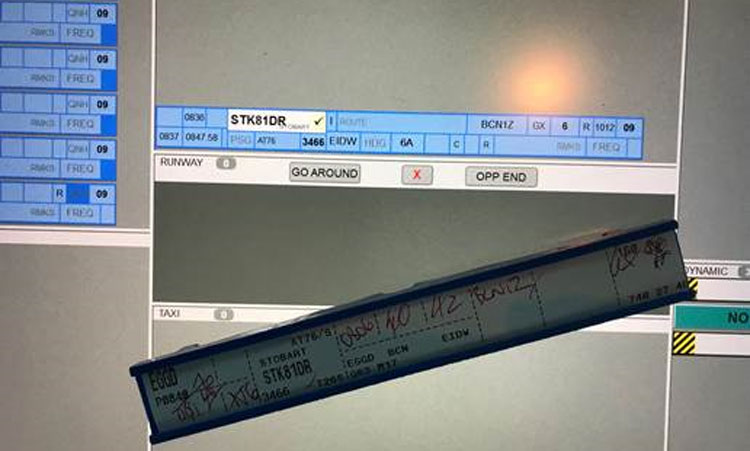NATS installs new digital flight strip system at Bristol Airport
- Like
- Digg
- Del
- Tumblr
- VKontakte
- Buffer
- Love This
- Odnoklassniki
- Meneame
- Blogger
- Amazon
- Yahoo Mail
- Gmail
- AOL
- Newsvine
- HackerNews
- Evernote
- MySpace
- Mail.ru
- Viadeo
- Line
- Comments
- Yummly
- SMS
- Viber
- Telegram
- Subscribe
- Skype
- Facebook Messenger
- Kakao
- LiveJournal
- Yammer
- Edgar
- Fintel
- Mix
- Instapaper
- Copy Link
Posted: 13 December 2018 | International Airport Review | No comments yet
Runner up in our Airport of the Year award category 2018, Bristol Airport has introduced a new Spoke Electronic Flight Progress Strip (EFPS) to increase stand management at the airport.


Credit: NATS The last paper strip and first electronic strip to be used in the control tower at Bristol Airport
The new system will incorporate the airport’s tower and approach services that handle over 75,000 flights per year carrying more than 8.5 million passengers to destinations across Europe and beyond.
The roll-out follows the system’s previous successful implementations at Belfast International, Belfast City and Farnborough Airports when controllers stopped using paper strips to record aircraft information in favour of electronic flight progress data using new Hub and Spoke system architecture.
While the concept of electronic strips is not new, all NATS’ Hub and Spoke systems link to a centralised set of data servers to drive operational screens in connected airports. This removes the need for every airport air traffic control tower to host its own locally-installed servers and the provision of individual data links at a specific site.
The new electronic flight information system delivers significant benefits in infrastructure costs as well as enhancing the way in which airport towers can share data, thanks to its ability to transfer and share data from the same single database. In Bristol’s case, EFPS will also improve the airport’s stand-management system after it successfully passed integration testing.
The new system, which will also be introduced at Southampton, Cardiff and London City airports, means that controller workload is reduced; bringing safety and capacity benefits as controllers have more time to handle more flights and monitor increased levels of air traffic.
Steve O’Donoghue, NATS General Manager, Bristol Airport said: “The benefit that EFPS will bring to Bristol can’t be overestimated; the implementation stands NATS and the airport in good stead for improved efficient procedures and provides the capacity for predicted airport growth. The ability to share data with our airport customer, passengers and airlines will be further enhanced with the anticipated integration of the airport management system and use of data clearances, realising tangible operational benefits to all stakeholders.”
Related topics
Air traffic control/management (ATC/ATM), Airside operations, Regulation and Legislation, Safety, Terminal operations
Related airports
Belfast City Airport (BHD), Belfast International Airport (BFS), Cardiff Airport (CWL), London City Airport (LCY), Southampton International Airport (SOU)


















